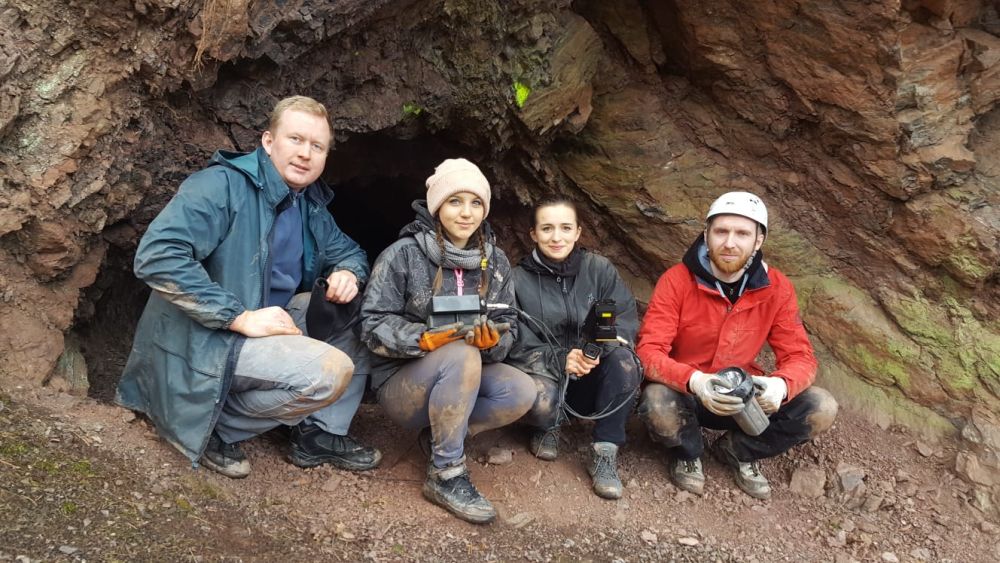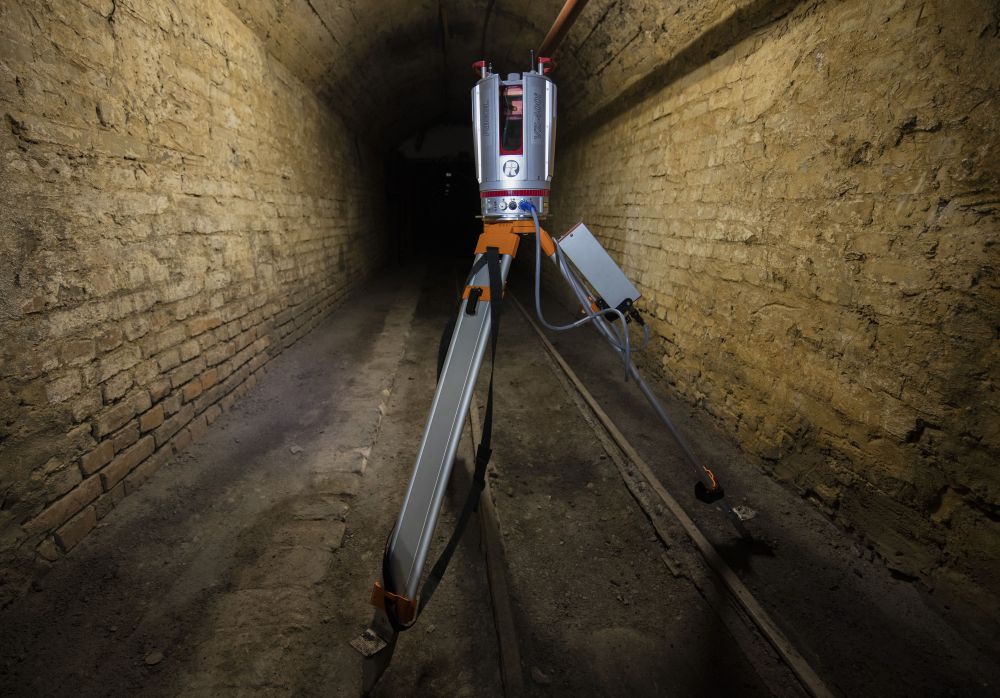YOUR BROWSER IS OUT-OF-DATE.
We have detected that you are using an outdated browser. Our service may not work properly for you. We recommend upgrading or switching to another browser.
Date: 30.01.2020 Category: admission, general news, science/research/innovation
At the Faculty of Geoengineering, Mining, and Geology, students of the new international specialisation - Geomatics for Mineral Resource Management - will start their classes in February. The course is a two-year second-cycle degree programme, to which WUST and Freiberg Mining Academy jointly invite all interested students.
 Delivered in English, the classes will be held in Wrocław and Freiberg. Students will spend two semesters in Lower Silesia and two in Germany, where they will also have the opportunity to improve their German (which is obligatory under the course curriculum).
Delivered in English, the classes will be held in Wrocław and Freiberg. Students will spend two semesters in Lower Silesia and two in Germany, where they will also have the opportunity to improve their German (which is obligatory under the course curriculum).
- The graduates will be able to boast of two diplomas - from both universities - says University Professor Jan Blachowski, PhD, DSc, Eng. , specialisation supervisor. - They will write their MSc theses under the supervision of academics from WUST and Freiberg.
Geomatics for Mineral Resources Management is a specialisation (in the field of mining and geology, delivered in English) combining the issues of geodesy, data acquisition and processing techniques, as well as geoinformatics and geomodelling. Students will learn issues related to the geographical information system, remote data acquisition, advanced modelling of raw material deposits, as well as those concerning the environmental impact of mining operations, among other things. The curriculum also includes typical classes for future managers, covering areas such as project management, risk assessment, and human resources management.
- Before we started developing the course curriculum with the academics from Freiberg, we’d had a meeting in Berlin with employers operating in the industry and we’d listened to what they had to say about the kind of employees they needed and competences they expected from them. As for Polish entrepreneurs, with whom we’re in constant touch, we asked them the same questions. The degree programme we developed will respond to these needs - emphasises University Professor Jan Blachowski, PhD, DSc, Eng.
The courses, scheduled to start at our university at the end of February, have met with great interest. It is the only such specialisation in our country delivered in English. Professor Blachowski has already exchanged emails with many candidates from Poland and foreign countries, including Pakistan and Nigeria, who would like to start pursuing the degree programme. Those interested may choose one of two study paths - the first one (starting in February) begins with a semester at Wrocław University of Science and Technology, the next two are conducted in Freiberg, and the last one, which involves with writing a thesis, takes place at our university again. The second path (starting in autumn) means learning for one semester in Germany, while the following ones are organised alternately at WUST and Freiberg.
 Students will have an opportunity to go on study trips to mining facilities - to gain knowledge not only from books. Also, learning will be facilitated by MOOC (massive open online courses) - an e-learning programme with additional materials such as presentations, animations showing e.g. the process of modelling objects in space, and videos showing what (step by step) geodetic measurements look like, among other things. There, they will also find interesting case studies to solve and various tests to check their knowledge.
Students will have an opportunity to go on study trips to mining facilities - to gain knowledge not only from books. Also, learning will be facilitated by MOOC (massive open online courses) - an e-learning programme with additional materials such as presentations, animations showing e.g. the process of modelling objects in space, and videos showing what (step by step) geodetic measurements look like, among other things. There, they will also find interesting case studies to solve and various tests to check their knowledge.
The joint German-Polish degree programme in geomatics is part of a larger European initiative. Similar programs of combined international studies in geomatics have also been prepared by the University of Technology in Lisbon, the Technical University of Delft, and the University of Leoben. The Faculty of Geoengineering, Mining, and Geology does not exclude a possibility that in the future our students will be able to combine their degree programmes in Wrocław not only with semesters in Germany but also in Portugal, the Netherlands, and Austria.
For more information on the initiative and geomatics as a discipline of science, please visit the website study-geomatics.eu.
Our site uses cookies. By continuing to browse the site you agree to our use of cookies in accordance with current browser settings. You can change at any time.